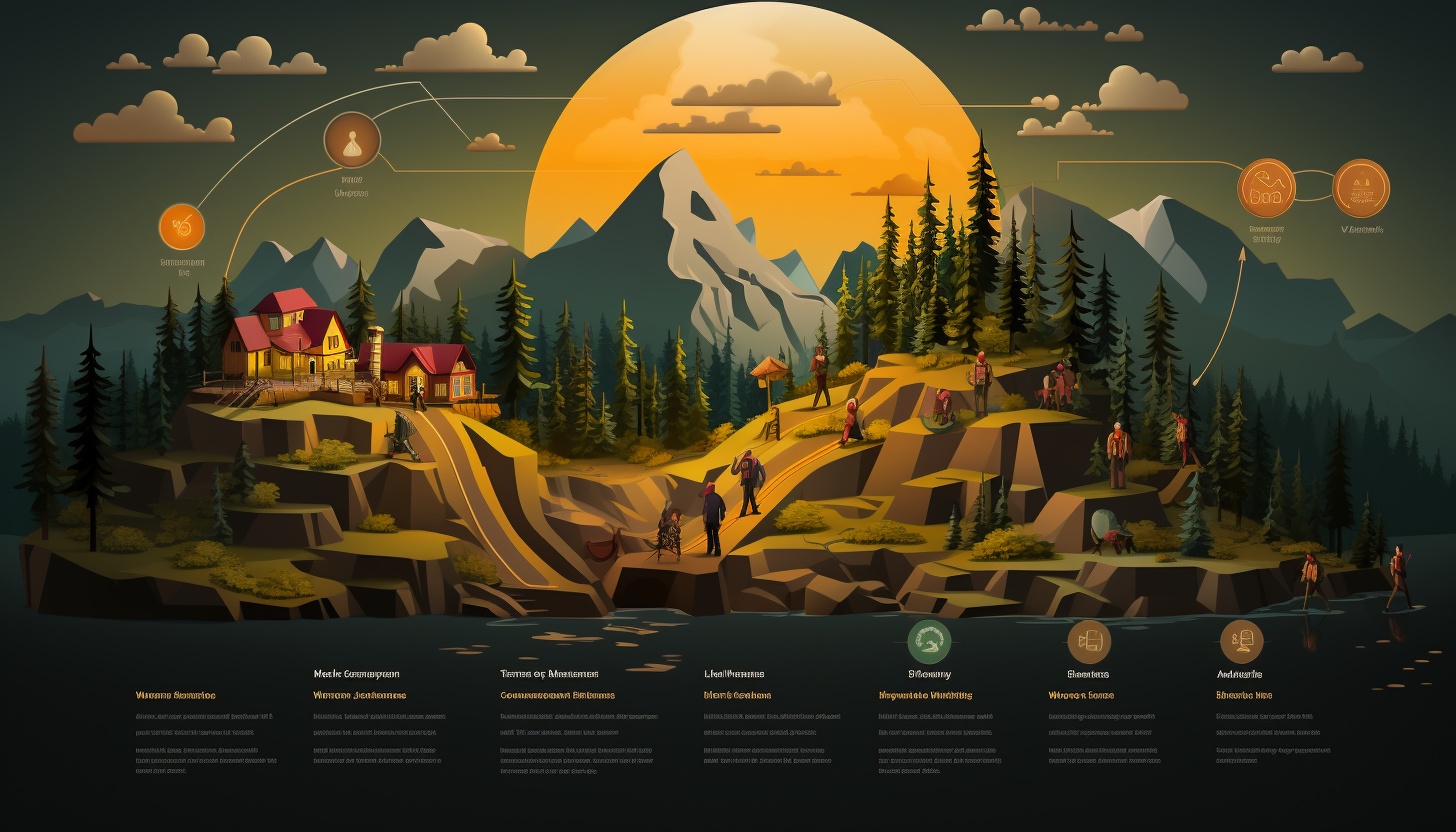
Navigating the Dating Pool: How to Identify Your Ideal Partner
So, you think you’ve found ‘the one,’ huh? Well, navigating the dating pool is no easy feat. But fear not, because this article is here to guide you through the murky waters of love.
From understanding your own needs and wants to identifying red flags and deal breakers, we’ll help you identify your ideal partner.
Get ready to dive in and discover the keys to a successful relationship.
Understanding Your Own Needs and Wants

To identify your ideal partner, it’s important to understand your own needs and wants. Taking the time to reflect on what truly matters to you’ll help you navigate the dating pool with more clarity and confidence.
Start by asking yourself what qualities you value in a partner. Are you looking for someone who’s kind, supportive, and understanding? Or maybe you prioritize ambition, intelligence, and a good sense of humor. Understanding your own needs and wants won’t only help you avoid settling for less, but it will also guide you towards finding someone who aligns with your values and goals.
It is also crucial to identify your deal breakers. What’re the things that you absolutely can’t compromise on? This could be anything from shared values and lifestyle choices to non-negotiable character traits. Knowing your deal breakers will save you time and prevent you from getting involved in relationships that are ultimately incompatible.
Identifying Red Flags and Deal Breakers

When identifying your ideal partner, it’s crucial to be able to recognize red flags and deal breakers in potential relationships. These are the warning signs that indicate potential problems or incompatibilities that could unravel the relationship in the long run. Identifying these red flags early on can save you from heartache and wasted time.
One important red flag to watch out for is a lack of communication. If your potential partner is consistently evasive or unwilling to have open and honest conversations, it may be a sign that they aren’t fully invested in the relationship.
Another red flag to be aware of is a lack of respect. If your partner consistently disrespects your boundaries, belittles you, or engages in controlling behavior, it’s important to recognize this as a deal breaker.
Deal breakers are the non-negotiable qualities or actions that you can’t tolerate in a partner. These can vary from person to person, but it’s important to establish your own deal breakers and stick to them. For example, if you value honesty and find out that your partner has a history of lying, this may be a deal breaker for you.
It’s important to trust your instincts and not settle for less than what you deserve. In conclusion, being able to identify red flags and deal breakers is essential when looking for your ideal partner. It helps you avoid getting involved in relationships that are potentially toxic or incompatible. Trust yourself and your instincts, and be willing to walk away if you recognize any red flags or deal breakers. Remember, you deserve a partner who respects and values you.
Assessing Compatibility and Relationship Goals

Assessing compatibility and relationship goals requires a thorough understanding of your own needs and desires. Before embarking on a new relationship, it’s important to take the time to reflect on what you truly want and what you value in a partner. This self-awareness will help you identify the qualities and characteristics that are essential for a successful and fulfilling relationship.
To assist you in this process, here is a helpful table to assess your compatibility and relationship goals:
| Relationship Goal | Your Needs and Desires |
|---|---|
| Communication | Open and honest communication is important to you. You value a partner who is willing to listen and express themselves freely. |
| Trust | Trust is the foundation of any healthy relationship. You seek a partner who is reliable and trustworthy. |
| Shared Values | You want a partner who shares your core values and beliefs. It’s important for you to be on the same page when it comes to important aspects of life such as family, career, and spirituality. |
| Emotional Connection |
Effective Communication and Emotional Intelligence

In order to foster a successful and fulfilling relationship, it’s crucial that you prioritize effective communication and emotional intelligence. These two qualities are the foundation for building a strong and lasting connection with your partner.
Effective communication involves actively listening to your partner, expressing your thoughts and feelings clearly and respectfully, and being open to compromise and understanding. It’s about creating a safe space where both of you can freely express yourselves and work through any challenges that arise.
Emotional intelligence, on the other hand, is the ability to recognize and understand your own emotions and those of your partner. It involves empathy, self-awareness, and the capacity to manage emotions in a healthy way. By developing emotional intelligence, you can better navigate conflicts, show understanding and support, and strengthen the emotional bond between you and your partner.
To improve your communication skills and emotional intelligence, start by being present in your interactions. Put away distractions and give your full attention to your partner. Practice active listening by truly hearing what they’re saying without interrupting or judging. Validate their emotions and experiences, even if you don’t agree. And most importantly, be willing to communicate your own thoughts and feelings honestly and respectfully.
Building Trust and Mutual Respect

To establish a strong and healthy relationship, it’s essential that you cultivate trust and mutual respect in your partnership. Trust is the foundation on which a relationship is built, and without it, the relationship may crumble under the weight of doubt and insecurity. Building trust takes time and effort from both partners. It requires open and honest communication, consistency in your actions and words, and the willingness to be vulnerable with each other.
Mutual respect is equally important in a relationship. It means valuing and appreciating each other’s thoughts, feelings, and boundaries. Respectful behavior involves listening attentively, showing empathy, and treating each other with kindness and dignity. It also means accepting each other’s differences and supporting each other’s goals and aspirations.
To build trust and mutual respect, it’s crucial to establish clear and open lines of communication. Share your thoughts, fears, and desires with your partner, and encourage them to do the same. Be responsive and attentive to each other’s needs and concerns. Avoid judgment and criticism, and instead, focus on understanding and finding solutions together.
Conclusion
Congratulations! You’ve now learned how to navigate the dating pool and identify your ideal partner.
Remember, like swimming in the vast ocean, finding love can be a journey full of waves and currents.
But armed with self-awareness, the ability to recognize red flags, and a clear understanding of your goals, you can confidently dive in.
Be patient and trust that the right person will come along, just like a pearl hidden in the depths of the sea, waiting to be discovered.






